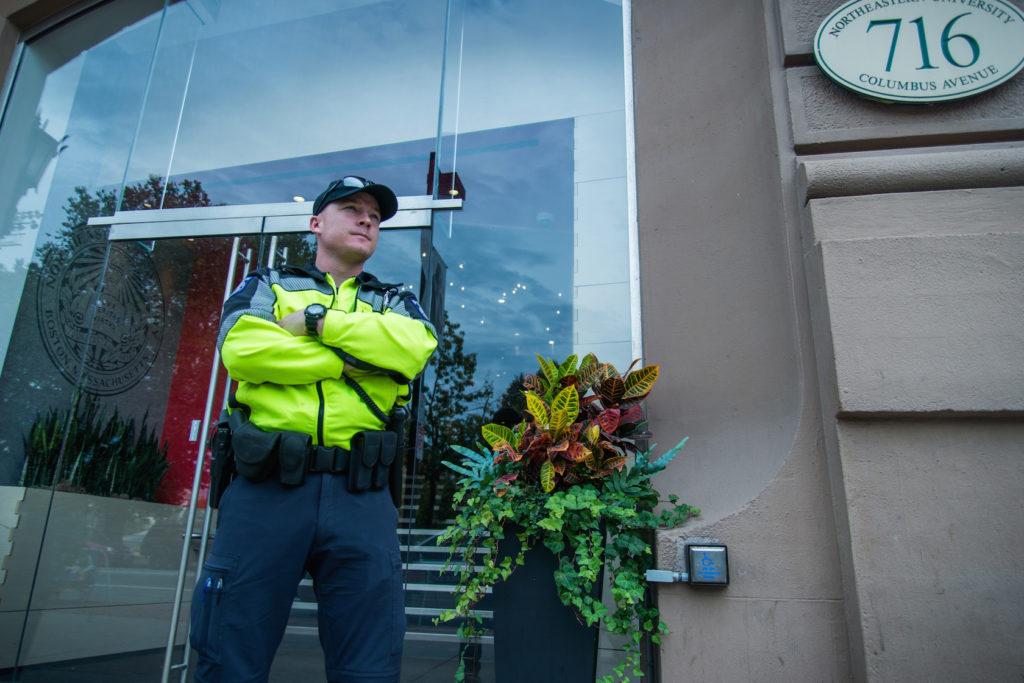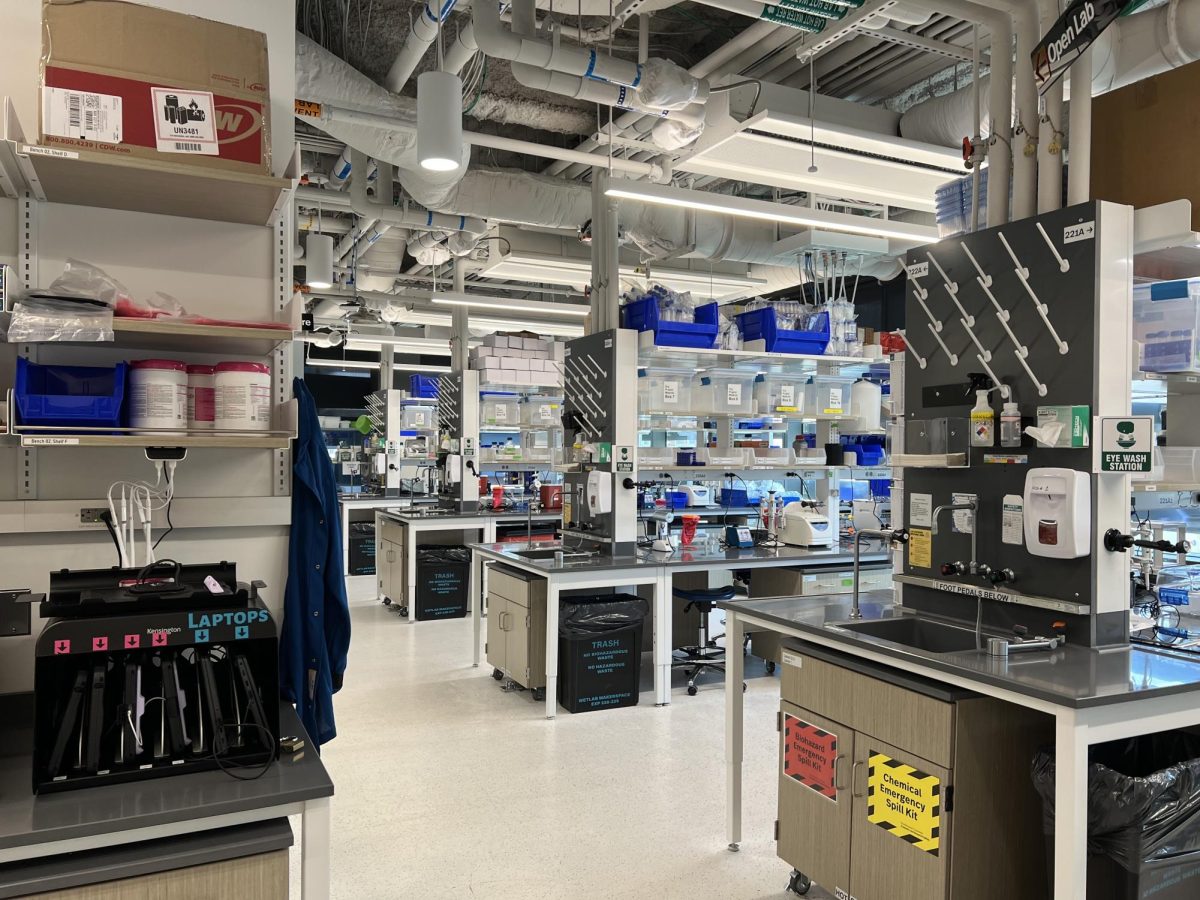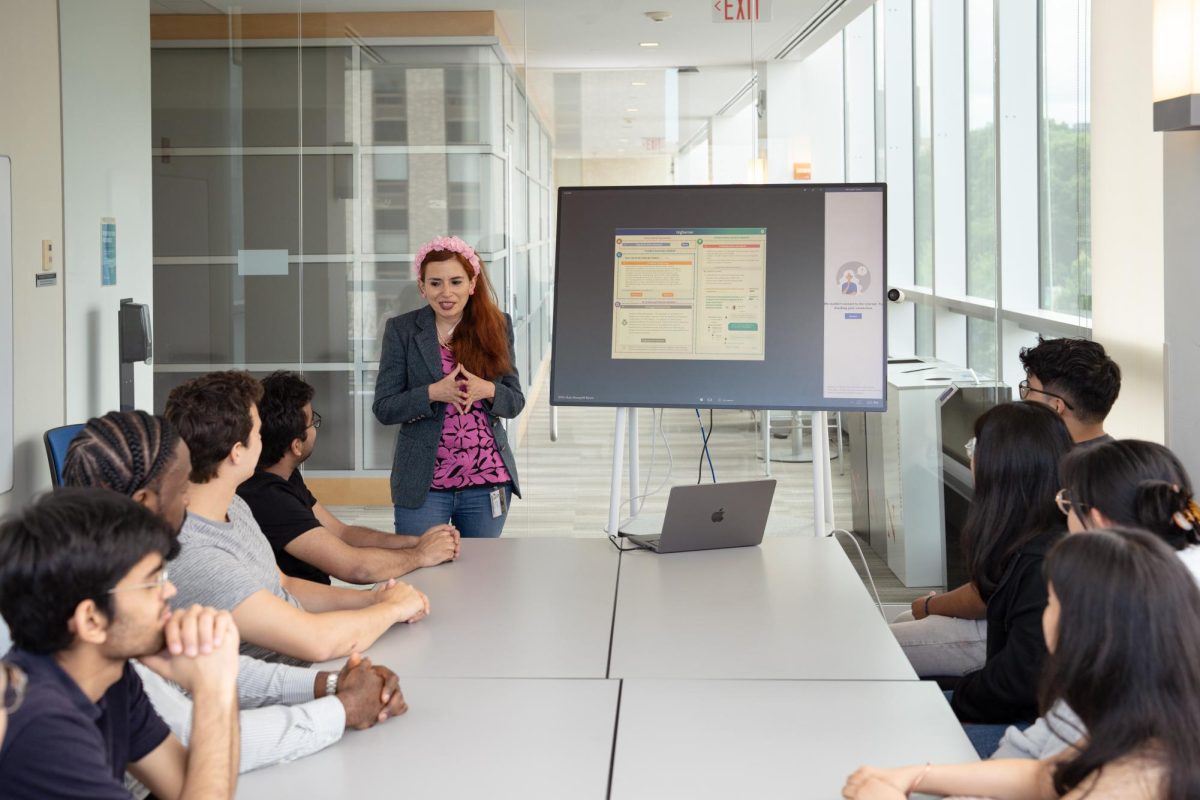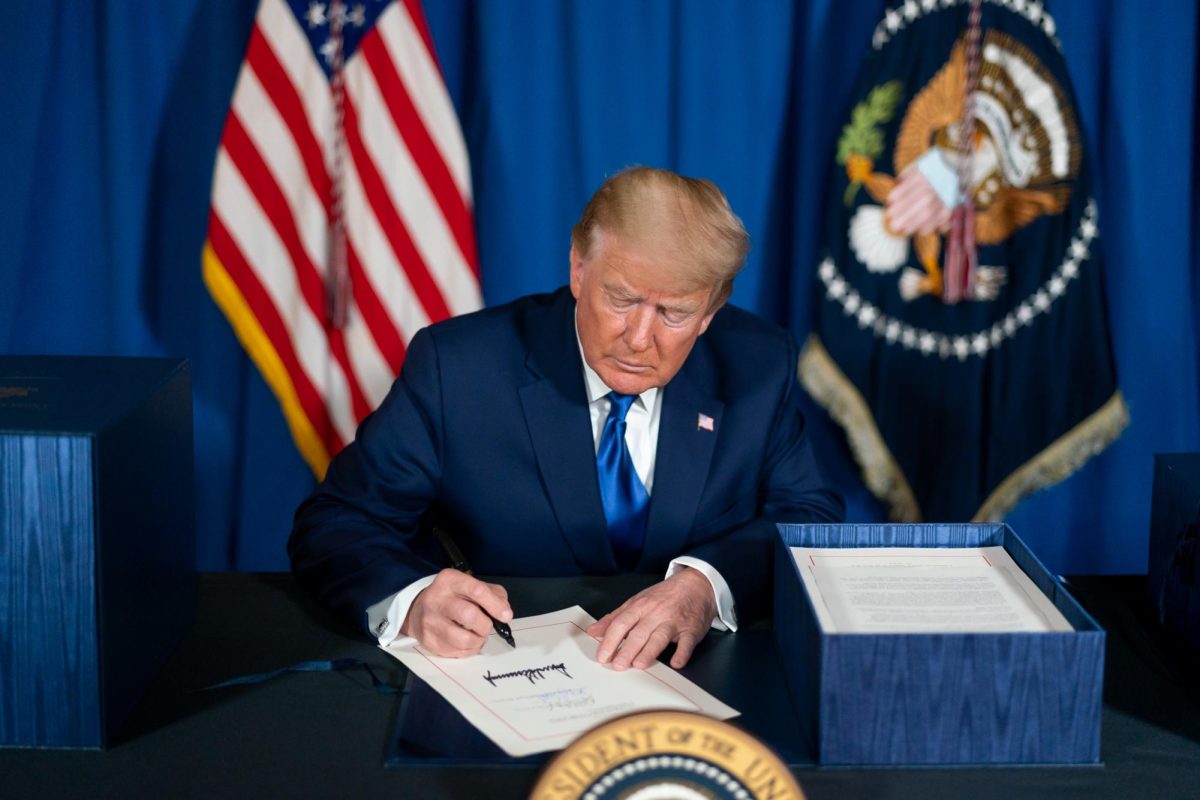By Stephanie Eisemann, news staff
Northeastern University students are used to seeing campus police officers in the Curry Student Center and strolling St. Stephen Street on crowded weekend nights, but sectors of the Northeastern University Police Department (NUPD) have gone unnoticed for years. For almost four decades, NUPD has been conducting plainclothes and undercover operations to recover stolen property, regulate underage drinking and maintain the peace on campus.
Lt. Detective James Casinelli has been with NUPD for 30 years and with the Special Services Unit for 28. He now oversees the unit of seven detectives who work almost exclusively in plainclothes. The unit oversees the use of undercover forces, most commonly to solve larcenies.
On Oct. 1, The News published in its weekly crime log that a plainclothes operation had been used to retrieve a stolen laptop from its thief, who was attempting to sell the item in Marino Recreation Center.
“The owner of the property [in the mentioned case] did most of the work by going to a certain website and confirming the laptop was his,” Casinelli said.
In the case published in the crime log, text messages were sent by the undercover detectives to trick the thief to meet with a plainclothes officer. When he attempted to pass the stolen property on to the officer, he was arrested.
“We proceeded by contacting the individual and setting up a meet and, in that case, we were able to make an arrest,” Casinelli said. “They did a great job.”
Northeastern-related phones or emails are never employed, and those used give no indication of belonging to law enforcement.
The use of undercover operations in relation to stolen property, and their success, is dependent on the cases NUPD receives. Out of the approximately 50,000 reports made to the NUPD each year, 2,500 are investigated and many are assigned to the investigative unit. Besides larceny, the unit assists with protective details for visiting dignitaries and helps prevent underage alcohol consumption.
“This is work every police department does across the nation and we modify it to fit our needs,” Deputy Chief Ruben Galindo, who is in charge of both the plainclothes and uniformed forces, said. “We work to deter crimes from occurring, but when we can’t, we employ different strategies, including undercover officers as decoys…or decoy property.”
The NUPD hopes to emphasize collaboration, not antagonism, according to Casinelli. The investigative unit works with state agencies on alcohol suppression and the validity of card machines, checking and patrolling establishments regularly and confiscating fake IDs. The department as a whole tries to emphasize the risks of underage drinking and its correlation to sexual assaults.
“We also focus on community engagement and take different approaches to protecting the campus by establishing a reputation as good neighbors,” Galindo said. “We dedicate time and effort to community interactions in the hopes they will respect the school, balancing outreach and enforcement.”
Galindo also explained a new initiative to focus on troubling behavior in light of recent school shooting cases and their retroactive notes on perpetrator’s threatening tells or behavior.
“Northeastern is one of the few schools with a tactical approach to preventing serious incidents by prioritizing behavior observation,” he said. “We don’t want to identify [potentially unstable individuals] to arrest them, we want to help them before serious harm occurs.”
Galindo said the initiative is still in its infancy but hopes it will help keep NU students safe from on-campus attacks in the long run.
Bike theft, one of the biggest larceny issues on campus, is an area in which NUPD tries to work with the community.
“Recently, my bike was stolen from in front of my apartment despite being locked with both a chain and U-lock,” Aaron McPherson, a junior mechanical engineering student, said. “I certainly wish the thief had been equally fortunate to sell to an undercover cop.”
Unfortunately, police cannot use undercover tactics for every case.
“When people lose their own property, we don’t really have any leads. When we get a lead, though, we exhaust it until the very end,” Casinelli said. “If you can do things lawfully to get back [property] and get the bad guy, it’s what you want to do.”
In addition to setting up meetings, officers visit pawn shops, sometimes on a weekly basis, to check for stolen goods. Casinelli recommended students, faculty and staff photograph their valuables, especially unique items, so they’re easier to identify.
While recovery is important, the ultimate goal of any police force is to prevent crime before it happens. Casinelli explained that there are many other investigative procedures that help students keep their property safe. In Snell Library, a common place for theft, NUPD is particularly active.
Additionally, if theft spikes in a particular area, they will address it with more plain-clothes personnel.
While Casinelli said most university police departments have undercover units, NU students did not seem as blasé about plainclothes cops patrolling the library.
“I wasn’t aware that NUPD used undercover forces on Northeastern students, and that raises a lot of questions. By nature, undercover police acts curb the rights of suspects and I’m not comfortable with that,” Jessica Imbro, a sophomore English and communication studies combined major, said in an email to The News.
Meredith Peterson, a fourth-year of the same major, expressed similar concerns.
“It’s definitely unsettling,” she said. “It feels kind of invasive. I mean, I don’t know anything about the legalities of it – I’m sure it’s perfectly legal, but it’s still weird. It makes me uncomfortable.”
Others were less quick to condemn the practice.
“I was very surprised to learn that the NUPD uses secret task forces to recover stolen goods from around campus,” McPherson said. “I get that some people are maybe uncomfortable with the NUPD operating covertly but, you know, I think there’s a trade-off between security and privacy, and I would rather be more secure and know a little bit less about the actions of the NUPD if it means that they keep me safer.”
Photo by Scotty Schenck















